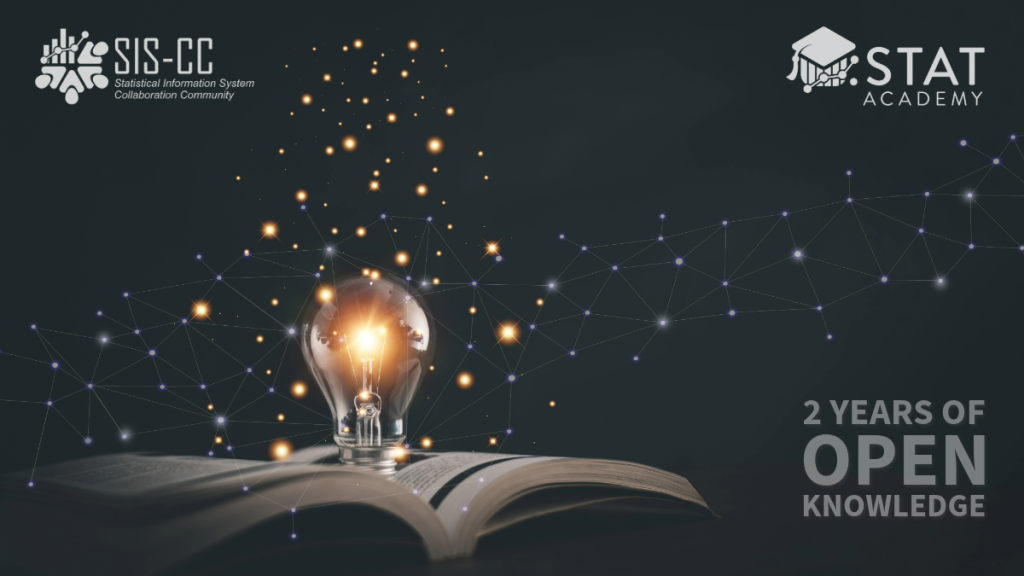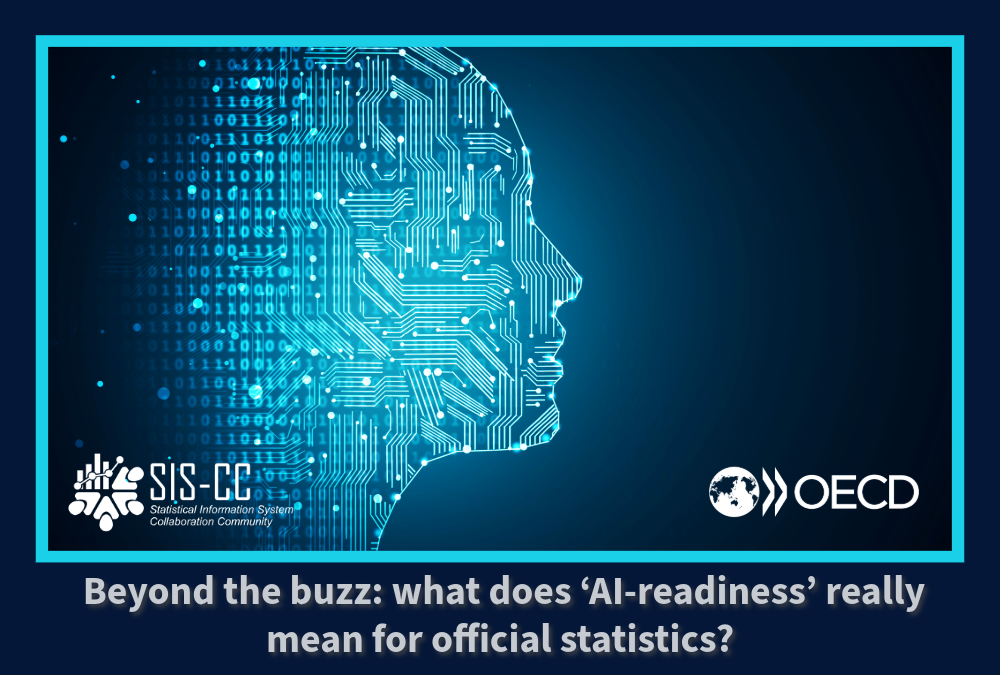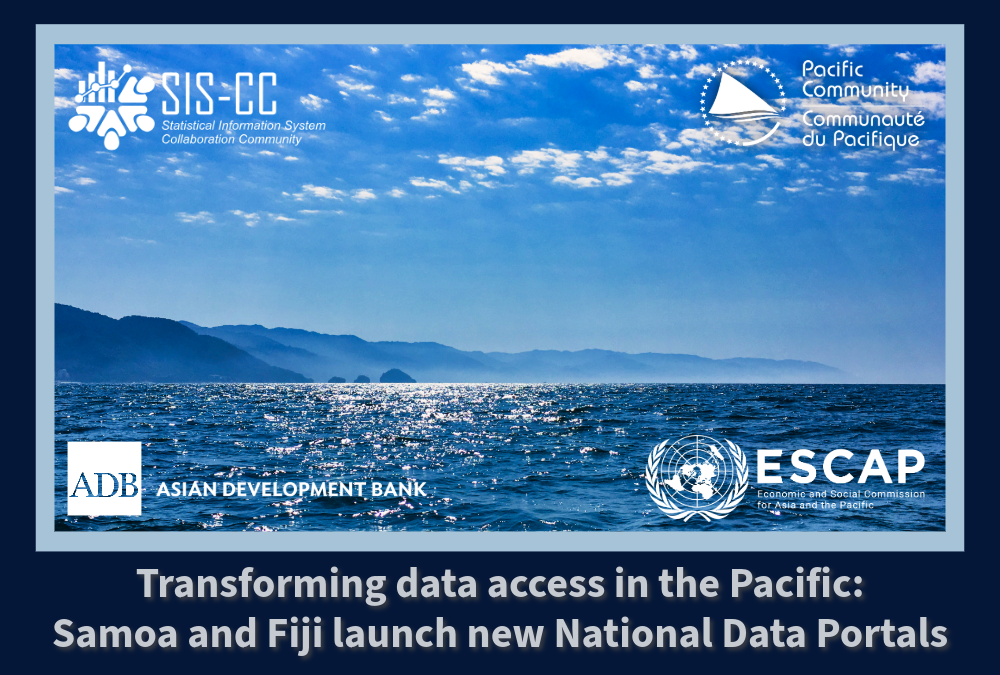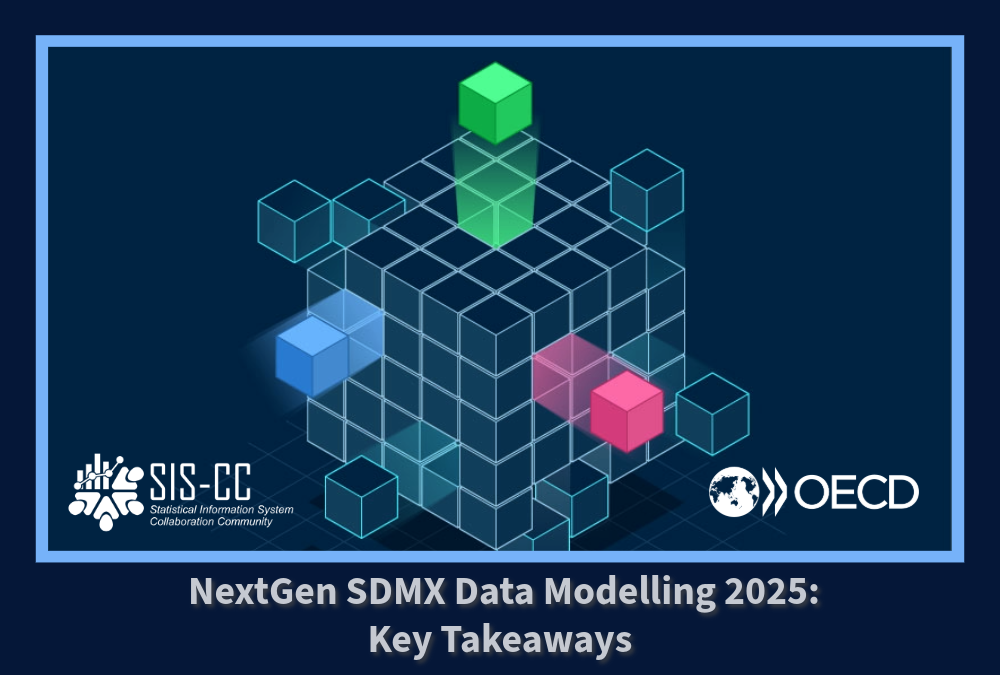
As the .Stat Academy celebrates its 2nd anniversary since its launch in January 2022, we take a moment to reflect on the major milestones and achievements of the past year as well as what lies ahead.
When the idea of the .Stat Academy was conceived, our primary objective was to provide a comprehensive and easily accessible platform for free online training and resources. Our aim was to support capacity building in deploying and using the .Stat Suite, as well modelling data and metadata in SDMX, catering to data toolers and data producers. We wanted to create a space that would help individuals develop the necessary skills to implement the best practices of official statistics tooling and modelling within their organisations.
To date, we have welcomed over 700 members from 143 countries and have published 7 courses, certifying more than 760 learners. The growth of the .Stat Academy in the last 12 months has far exceeded our expectations. Just one year ago, we had approximately 200 registered members and 100 certified learners across 4 courses.
Importantly, this development was done in parallel to multiple assistance interventions by the OECD team in several statistical organisations, as well as throughout a large re-modelling of all OECD data. So, this context was ideal to develop the .Stat Academy not for its own sake, but in order to serve concretely a broader change process, through which organisations remodel their data to make them more harmonised, and disseminate them through .Stat Suite to make them more accessible.
The success of the .Stat Academy has been made possible by the commitment of our supporting experts, who have become expert trainers and coaches. They share their expertise not only within their own organisations but also with the wider community. Through a well-established pedagogical approach to self-paced learning and certification, their knowledge is transformed into open knowledge. So far, we have published 7 courses, with 3 introduced in the past 12 months, and more planned for 2024. Our dedication to open knowledge is empowering experts to become trainers, strengthening data governance through data modelling best practices and harmonised structural meta(data) in support of the official statistics modernisation.
Our latest addition, the course “Disseminating data with an optimised end-user experience,” takes SDMX data modelling to the next level. It equips learners with the skills necessary to prepare disseminated structures and data. By utilising SDMX features such as annotations and attributes, this course guides learners in designing data with the end-user in mind. It contributes to our objective of making data more accessible and user-friendly in the .Stat Suite Data Explorer, catering to diverse audiences.
One of the highlights of 2023 for me was receiving positive feedback for the .Stat Academy course on SDMX vocabulary for beginners, which has attracted nearly 300 learners. I hope the newly published course, Disseminating data with an optimised end-user experience, will also be well-received.
Jens Dossé, Head of Section, Smart Data Solution and .Stat Academy instructor
During the past year, we have not only focused on creating valuable content but also on enhancing the platform and overall user experience. We have streamlined the course landing pages to provide quicker access to the essential information. Recently, we introduced “My achievements” under “My profile,” where learners receive badges that correspond to their individual learning journey—from joining the academy as a learner, progressing to awareness upon completing the first set of courses, and further building knowledge as practitioners and experts. Instructors are also distinguished by a specific badge.
So, what can you expect next? We have two upcoming courses close to completion: “Modelling SDMX Referential Metadata for Data Dissemination and Reporting” and “Creating and Applying Mappings for the .Stat Suite.” Additionally, we are actively working on more “how-to style” .Stat Suite videos that focus on specific features. For example, “The .Stat Data Lifecycle Manager for Data Managers.” We are continuously enhancing the user experience, incorporating new features based on your valuable feedback through course reviews and the Net Promoter Score (NPS) survey sent upon course completion. We would also like to explore opportunities to systematise our coaching practice as part of the .Stat Academy and offer opportunities for learners to meet our experts and possibly extend their learning experience with coaching opportunities.
The establishment of the .Stat Academy—a free online learning hub supporting capacity building in the deployment and usage of the .Stat Suite as well as remodelling of data and metadata in SDMX for a global community of adopters, contributors, and users—has been instrumental in advancing our open-source, open innovation, and open knowledge journey. This role will only grow as we look ahead to our next strategy, starting in 2025.
In the long run, what we would like to achieve with the Academy, is to build a large community of learners and teachers who can put their heads together to solve the most difficult of all problems: how to enable staff to continuously learn new techniques adapted to new challenges, and how to encourage experts to share their expertise, and not only within their own organisation but for the community at large. Combining self-paced learning experience with synchronous online or onsite coaching are also part of the picture; adapting the Academy to develop sectorial or organisation-specific Academies constitute another potential angle for bringing more value in the future. Eric Anvar, Head of Smart Data, OECD
We extend our thanks to everyone who has contributed to the .Stat Academy’s continued success, and we eagerly anticipate another year of knowledge building together!
The .Stat Academy Team



